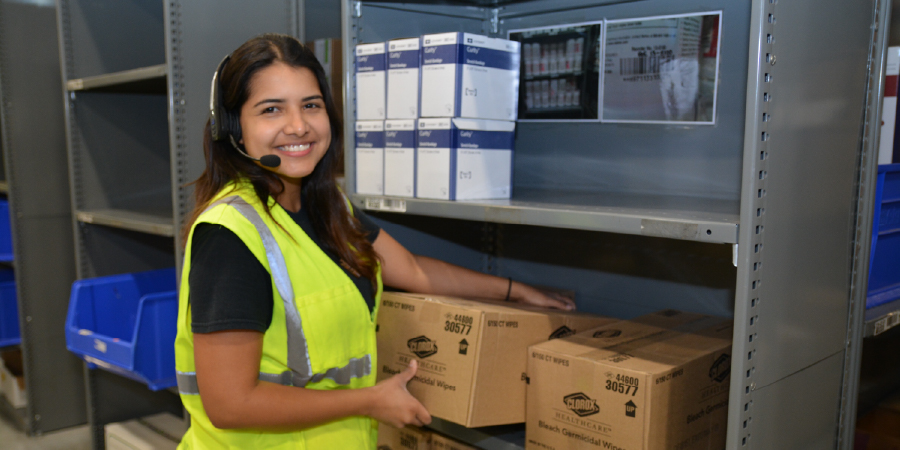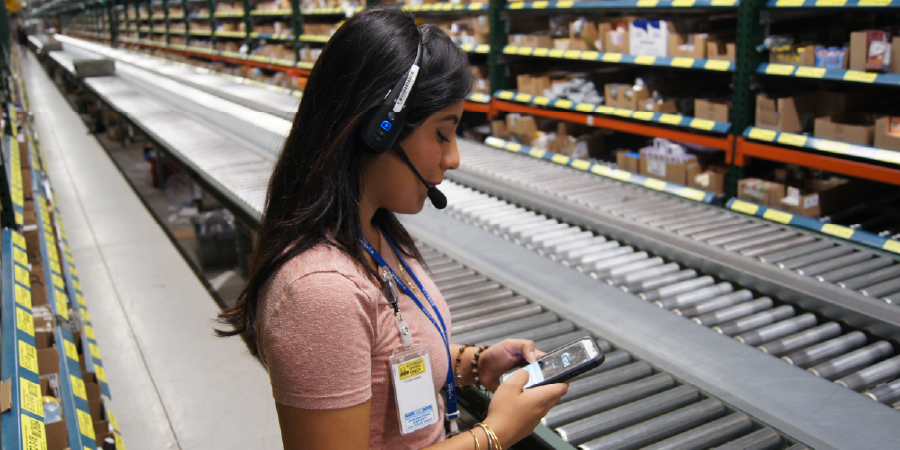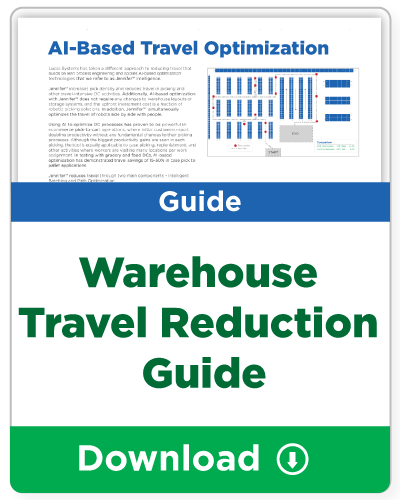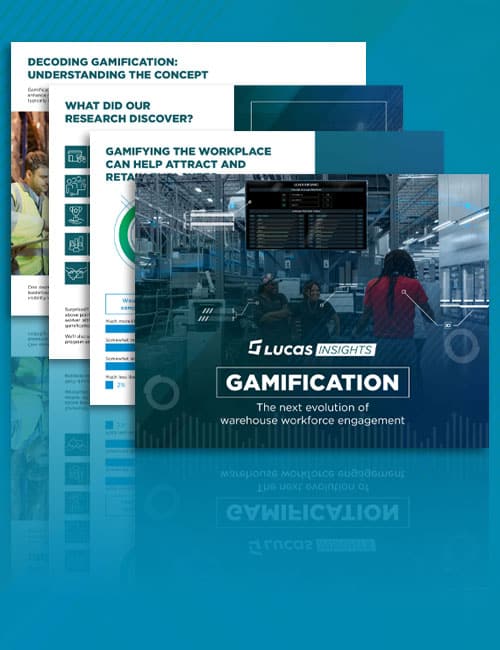Double DC Productivity by Reducing Travel
Labor is the single largest operating cost in most DCs, and travel often accounts for half of all labor time, especially in order picking. Lucas travel optimization uses advanced mathematical models and artificial intelligence (AI) to reduce travel 30-70%. Customers have more than doubled picking productivity and cut labor hours in half without making any changes to their warehouse layout.
- 122% increase in lines per hours
- 99.99% same-day shipping
- 33% increase in throughput
- 50% reduction in labor hours
- Simplified work release and management
Get a free travel simulation to estimate your travel and cost savings
Fill out the form to see how much travel time your pickers could be saving with AI-based optimization.
We’ve helped distribution leaders in every industry
How Do We Reduce Travel?
Lucas uses order, inventory, and location information from WMS and other systems and Jennifer™ – the brain, voice and orchestration engine of the Lucas system – applies real-time optimization algorithms to create optimal work assignments. Jennifer™ then uses a virtual model of your facility to define an optimal pick sequence or travel path.
Maximize pick density with dynamic prioritization

Skyrocket productivity with intelligent batch picking
Rather than following a simple first-in-first-out batching method, Jennifer™ uses mathematical models to create optimized batches of pick lines and assigns them to pickers on-demand, as they request work. In contrast to typical WMS batching rules, the Lucas models weigh a variety of factors, including:
1) Order priority
2) Product locations
3) Product dimensions
4) Starting and ending points
5) Potential travel path
6) User permissions
Cut travel in half with pick path optimization
After batches are created, Lucas applies multiple algorithms to determine an optimized path for the user to take through the warehouse to complete their work.
The algorithms consider aisle directions (one-way aisles, for example), base item designations, and other factors to determine the most efficient pick path.
Optimize robots and humans simultaneously
While Jennifer™ orchestrates and optimizes within picking zones, a DC can add robots for conveyance between pick zones or other staging locations. 
Minimize turnaround times with waveless order release
As an added bonus for DCs processing higher volumes of ecommerce orders, the tool supports continuous order streaming or so-called waveless order release.
Get started with these helpful resources
Check out our knowledge center

We helped Baptist Health, a leading healthcare provider, double picking productivity.“The previous average picking rate in the LUM area was 50-56 lines per hour (LPH). Today it is 100-110. That is a 100% improvement, and in bulk picking, the number is about 20 percent.”
-Dale Adamson, AVP of Logistics and Distribution
Download Case Study

We helped Apex Tool Group, a leading manufacturer of hand and power tools, operate with 10% fewer man hours.“You rarely implement a new system and have users tell you ‘It’s made my life so much easier!’ Making the processes better for associates makes them more productive. And that’s better for the business.”
-Chris Rufa, Senior Director of Global Distribution
Download Case Study








